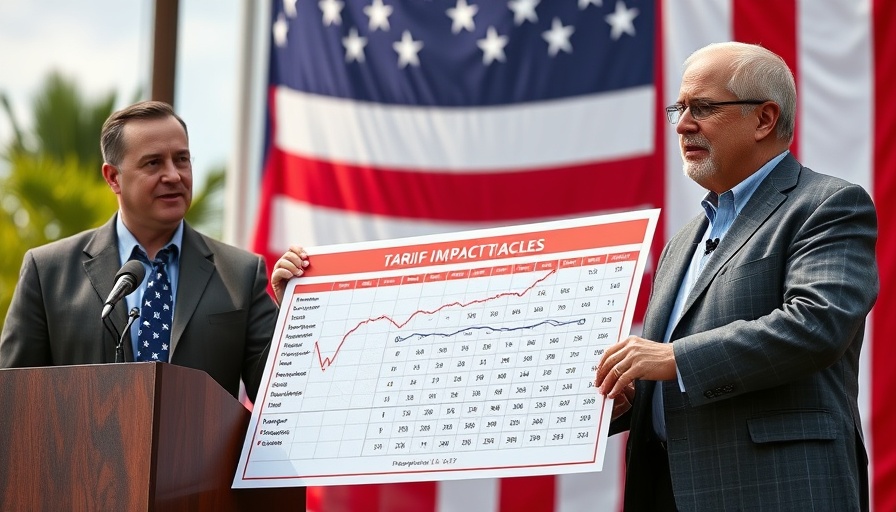
Trump Tariffs: A Delay or a New Strategy?
The recent decision by a federal appeals court to allow President Trump’s tariffs to remain in effect during the legal appeal process has sent shockwaves across various sectors, especially the investment community. The ruling underscores the ongoing uncertainties surrounding international trade policies and their implications for the stock market. With the court's emphasis on the situation's 'exceptional importance,' the discourse around these tariffs is expected to become even more intense as the case progresses towards arguments scheduled for July 31.
The Economic Landscape of Tariffs
The tariffs, particularly those dubbed as 'Liberation Day' tariffs, have been a crucial tool for Trump in negotiating trade terms with countries like China, Canada, and Mexico. The broader impact on the economy involves potential repercussions for investors across the board—from stocks to bonds and real estate investments. With many traders eyeing these developments closely, the link between tariffs and stock market trends becomes increasingly vital. Investors need to weigh the risks of portfolio diversification against the backdrop of these evolving tariffs.
Investment Strategies in a Tariff Landscape
As tariffs potentially raise import costs, U.S. companies, particularly in manufacturing and warehousing, may face squeezed margins. Investors must recalibrate their investment strategies—considering ETFs that focus on companies less affected by tariffs, or those in sectors like healthcare and technology. This is especially relevant for investing in technology stocks, which may continue to thrive despite tariff-related challenges.
Monitor Real Estate and Alternative Markets
Property investments, often seen as stable, could also shift as tariffs influence construction costs and material availability. In this changing landscape, focusing on real estate investment trusts (REITs) could offer a way to diversify income streams while managing risk. Furthermore, with the ongoing appeal, those interested in alternative investments, like venture capital or crowdfunding, may find opportunities aligned with innovation and technology advancements that could thrive despite tariffs.
Impact of Tariffs on Financial Markets
The continuation of tariffs could induce volatility in financial markets, thereby impacting investment behaviors significantly. For instance, investors in growth stocks might find themselves questioning their long-term strategies if market conditions shift dramatically due to tariff changes. Overall, the key takeaway for investors is to remain aware of the potential for stock market corrections and adjust their financial strategies accordingly.
What Lies Ahead?
As the appeals process unfolds, the economic indicators will be crucial to watch. Analysts will be keen to observe the court's final acceptance of Trump's emergency economic powers argument, as this could reshape the approach to tariffs drastically. Consequently, maintaining a flexible posture in investment education and strategic asset allocation will be crucial for navigating this terrain.
Conclusion: The Call for Vigilance
As we navigate the complexities of tariffs and their appeal process, investors must remain vigilant and adaptable. Whether through diversified portfolios or targeted investments in sectors likely to weather economic storms, the key will be to stay informed and ready to act. Understanding these dynamics will empower investors in both the short and long term as the situation evolves.
 Add Row
Add Row  Add
Add 



Write A Comment